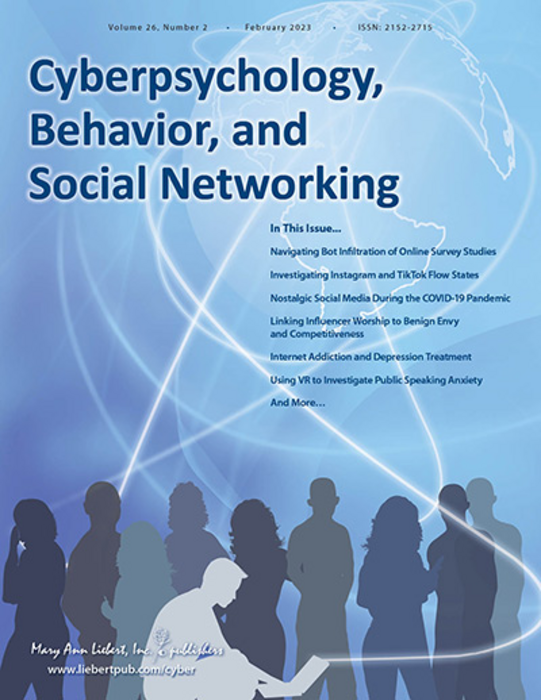A new study has shown that sexting was associated with depression, anxiety, sleep problems, and compulsive sexual behaviors. The study is published in the peer-reviewed journal Cyberpsychology, Behavior, and Social Networking. Click here to read the article now.

Credit: Mary Ann Liebert, Inc., publishers
A new study has shown that sexting was associated with depression, anxiety, sleep problems, and compulsive sexual behaviors. The study is published in the peer-reviewed journal Cyberpsychology, Behavior, and Social Networking. Click here to read the article now.
Sexting is defined as sending a sexually explicit image of oneself over text messaging. Sexting can include sending only, receiving only or “reciprocal” (sending and receiving) use of messages.
Nicholas C. Borgogna PhD, from Texas Tech University, and coauthors, found that participants who had only ever sent (but not received) sexts reported more depression, anxiety, and sleep problems than the other groups. They also reported a possible connection between sexting, marijuana use, and compulsive sexual behavior.
“While sexting may not necessarily be a causal factor of negative mental health outcomes or substance use, some meaningful covariation clearly exists,” stated the investigators.
“Over 50% of adults report sending a sext, while women are up to four times more likely than men to report having received nonconsensual sexts. Many individuals reveal they enjoy consensual sexting and feel it empowers them and builds self-confidence. Nonconsensual sexts, however, can result in feelings of violation and awkwardness,” says Editor-in-Chief Brenda K. Wiederhold, PhD, MBA, BCB, BCN, Interactive Media Institute, San Diego, California and Virtual Reality Medical Center, La Jolla, California.
About the Journal
Cyberpsychology, Behavior, and Social Networking is an authoritative peer-reviewed journal published monthly online and in print with Open Access options that explores the psychological and social issues surrounding the Internet and interactive technologies. Complete tables of contents and a sample issue may be viewed on the Cyberpsychology, Behavior, and Social Networking website.
About the Publisher
Mary Ann Liebert, Inc. is a global media company dedicated to creating, curating, and delivering impactful peer-reviewed research and authoritative content services to advance the fields of biotechnology and the life sciences, specialized clinical medicine, and public health and policy. For complete information, please visit the Mary Ann Liebert, Inc. website
Journal
Cyberpsychology Behavior and Social Networking
DOI
10.1089/cyber.2022.0312
Method of Research
Case study
Subject of Research
People
Article Title
Further Understanding the Correlations Between Sexting and Mental Health: Considerations for Sex and Sexual Identity




